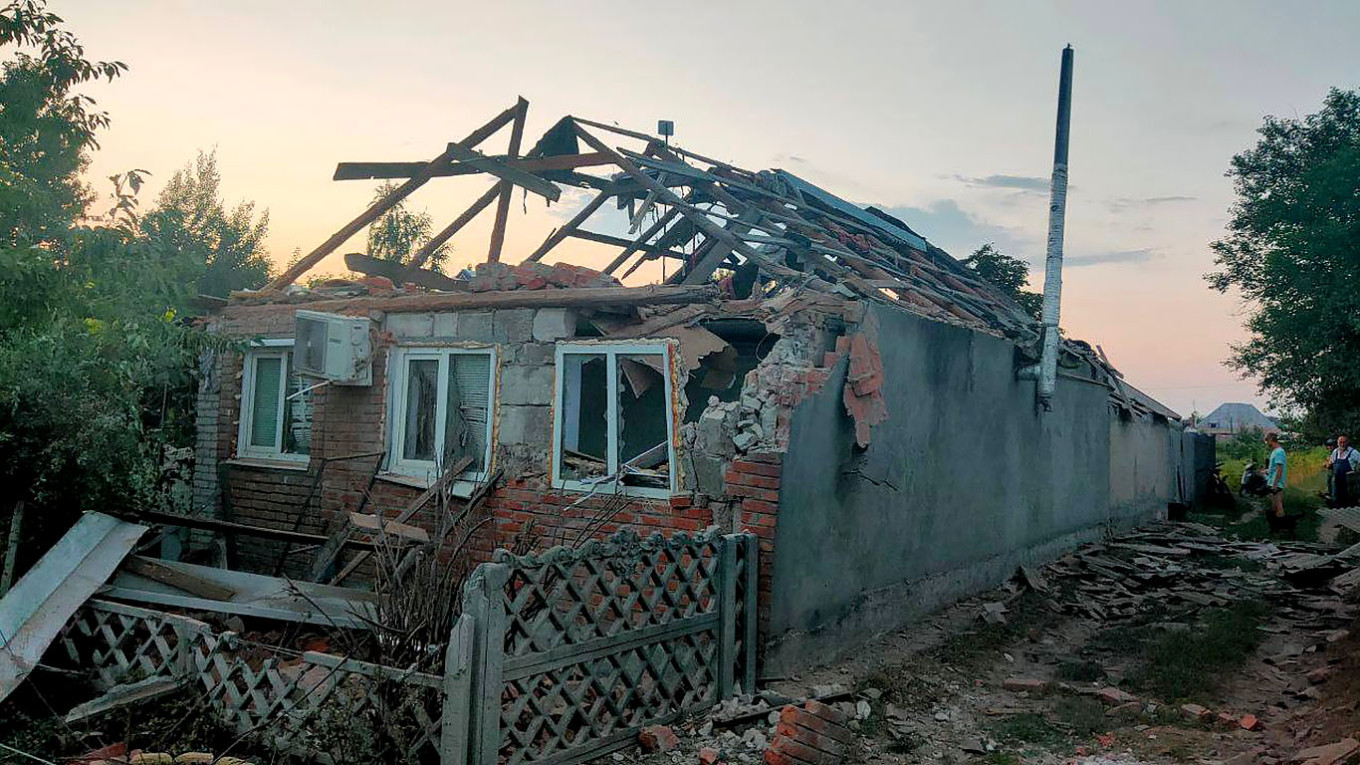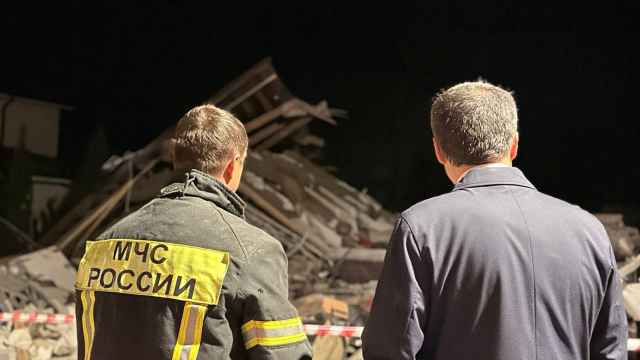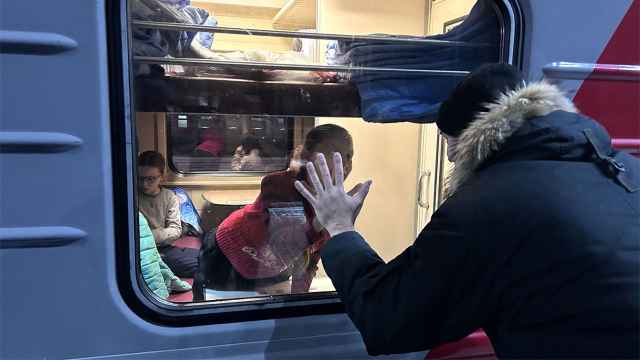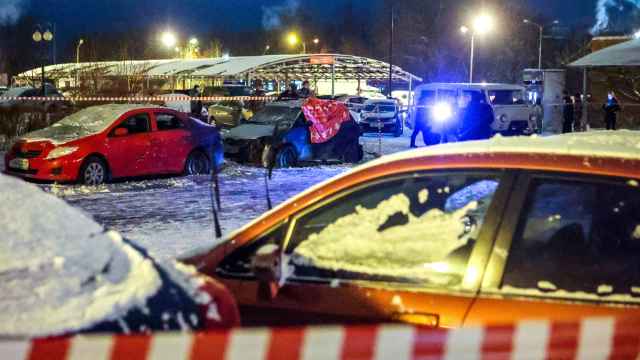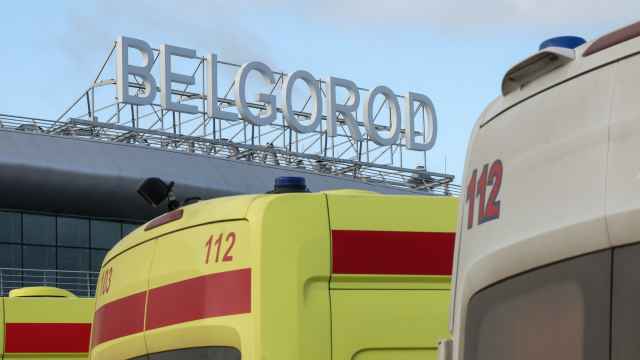The governor of Russia's Belgorod region bordering Ukraine said Tuesday that public access to 14 border villages will be restricted due to constant bombardment.
The announcement came after Russian President Vladimir Putin launched a May ground offensive on Ukraine's northeastern Kharkiv region that he said was intended to create a buffer zone to protect the Belgorod region from shelling.
The region has instead seen continued shelling and drone attacks from Ukraine, with frequent fatalities among residents.
"From July 23 we are restricting access to 14 residential settlements where the operational situation is extremely difficult," Belgorod Governor Vyacheslav Gladkov said on Telegram.
He listed 14 villages and hamlets near the border with Ukraine.
"Checkpoints will be set up on access roads and representatives of law enforcement will be on duty there."
"Access to public transport including taxis will be banned," he added.
"We will allow in only adult men according to strict rules: in an armored vehicle with an electronic warfare device with PPE — a bullet-proof vest and helmet — accompanied by military," the governor said.
He added that it was "unacceptable to allow women and children into residential settlements that are shelled every day."
Gladkov said that the military would guard people's homes.
"We will start implementing this from next Tuesday," he added, without giving any end date for the measures.
Gladkov did not say that all residents would have to leave the areas, but said those who left would be able to claim a monthly payment for renting elsewhere.
"I hope, dear friends, you will be understanding about this decision," he told residents, conceding: "of course we don't expect any positive responses."
"But the main thing is a person's life. We have already lost a lot of peaceful residents, we have a lot of wounded," he said
"Our task is to take maximum security measures," Gladkov told residents.
The state-run TASS news agency later cited Gladkov saying that more than 200 civilians have been killed in the region since the start of what Moscow calls its "special military operation" in February 2022.
A Message from The Moscow Times:
Dear readers,
We are facing unprecedented challenges. Russia's Prosecutor General's Office has designated The Moscow Times as an "undesirable" organization, criminalizing our work and putting our staff at risk of prosecution. This follows our earlier unjust labeling as a "foreign agent."
These actions are direct attempts to silence independent journalism in Russia. The authorities claim our work "discredits the decisions of the Russian leadership." We see things differently: we strive to provide accurate, unbiased reporting on Russia.
We, the journalists of The Moscow Times, refuse to be silenced. But to continue our work, we need your help.
Your support, no matter how small, makes a world of difference. If you can, please support us monthly starting from just $2. It's quick to set up, and every contribution makes a significant impact.
By supporting The Moscow Times, you're defending open, independent journalism in the face of repression. Thank you for standing with us.
Remind me later.


